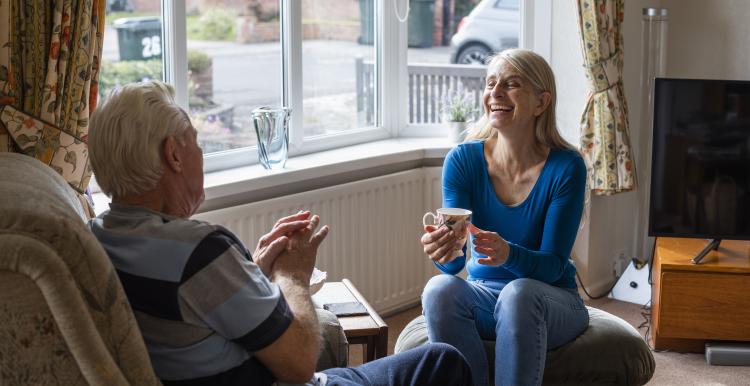How to look after yourself whilst caring for someone else

Some people become carers overnight. When somebody has an accident or is taken ill, they can suddenly need support from those around them. For others, it can happen gradually, such as when parents cannot manage independently, or a partner's health deteriorates.
Only some people realise that they have become a carer. The gradual development of a mental or physical health condition can see someone's needs build over time and their loved one slipping into the role of carer without acknowledging its impact on their lives.
Looking after yourself: top tips
- Take time to be compassionate to yourself.
- Be honest with the person that you may not know what they are going through but that you care and want to help.
- Find your local carers support groups – they can be vital in giving you the support you need and helping you speak to people in similar situations. For help finding a support group, email advice@carersuk.org or call 0808 808 7777 Monday - Friday, 9 AM - 6 PM.
- Make the time to do things you enjoy, such as walking the dog, joining an evening class or meeting friends.
- Join the Carers UK online chats - Care for a cuppa. For more information on how to join the Zoom sessions and the dates, visit the Carers UK website
- Acknowledge that you may not be able to ‘fix’ the person you are caring for but that you are there to help and support them.
- If you are struggling, talk to your GP and tell them how your caring role impacts your health. They will be able to offer confidential advice and support.
Working with Bournemouth University and Dorset Healthcare NHS Trust, Healthwatch Dorset produced a video featuring local people talking about when they first realised that they had become carers and how their lives have changed as a result.
They spoke about the problems they have faced, their effect on their relationships, and some things that have helped them cope since becoming carers.
The two videos – Becoming a Mental Health Carer and Being a Mental Health Carer - are available to view on the Bournemouth University YouTube channel.
Need more help?
There are lots of charities out there to offer advice and support to carers, including:

Need more advice?
Get the latest advice and information to help you stay well straight to your inbox

